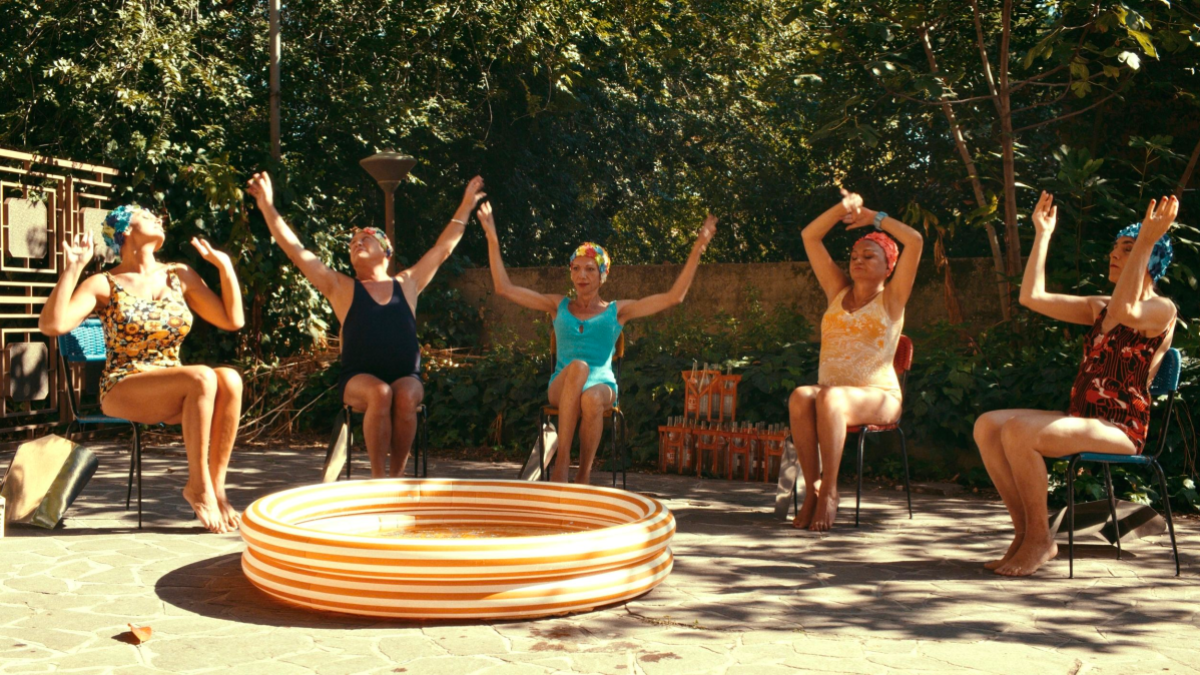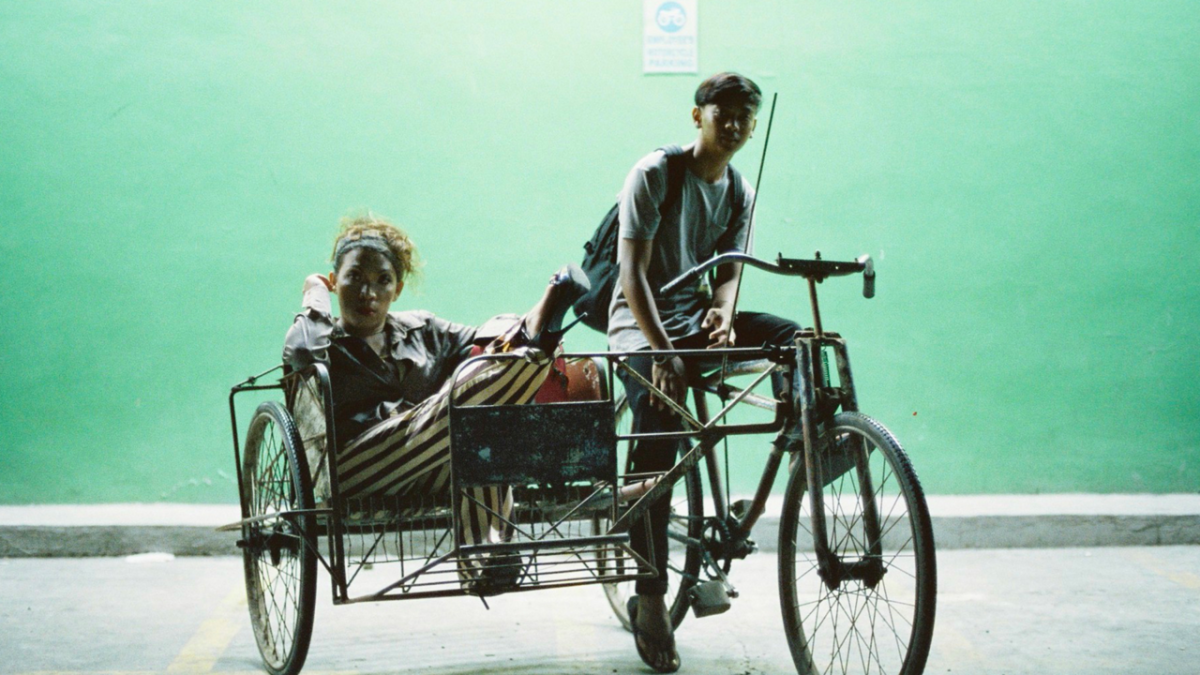These The Fabulous Ones and Asog reviews were written during the 2023 WGA and SAG-AFTRA strikes. Without the labor of the writers and actors who are currently on strike, movies like these would not be possible, and Autostraddle is grateful for the artists who do this work. This review contains very mild spoilers.
Outfest is taking place in Los Angeles between July 13 and Jul 23. Drew Gregory and Sa’iyda Shabazz will be bringing you all kinds of reviews. If you’re interested in attending, virtually or in person, check out Outfest’s full schedule.
Cinema all around the world has been telling trans stories since they’ve been telling stories. Or, rather, they’ve been telling the same trans stories over and over and over again. There have been exceptions, of course — from Georges Méliès’ gender play in The Witch (1906) to Shirley Wood’s misunderstood autobiography Glen or Glenda (1953) to Isabel Sandoval’s recent masterpiece Lingua Franca (2019) — but these are exceptions. For the most part, Hollywood and beyond have told the same flat or flat-out false narratives to much acclaim and many awards.
Two of Outfest’s hidden gems tell new stories — or, rather, allow transfeminine people to tell those stories themselves. My ideal trans cinema is one created entirely by trans people. But the next best thing is when cis filmmakers use their experience and tools to shepherd trans people toward expressing themselves on-screen.
The Fabulous Ones and Asog, directed by Roberta Torre and Sean Devlin respectively, do just that. By mixing documentary and narrative, Torre and Devlin train their cameras on trans people with stories bursting out of them. The result: two unique works of art, each one both funny and devastating, encompassing the complicated depth of trans lives, human lives.
The Fabulous Ones is about a group of older Italian trans women who gather after years apart to honor their friend who died decades earlier. This eclectic friend group from the 70s includes an array of transfemininity from a guitar-playing rocker to a glamorous diva. Most of the women are playing themselves, but it’s unclear how much is fiction and how much is non-fiction. The interviews where they describe their experiences with friendship and family and sex work are likely documentary, the seance likely not.

While Torre certainly uses plenty of artistic flourishes — from 8mm footage, to dreamy montages, to the aforementioned seance — her greatest skill is how she captures these women and lets them talk, lets them interact. There is value in just getting these stories down, sharing them with younger trans people, and preserving them for the future. There’s an added truth and respect in how in one sequence Torre cuts the women sharing their most unpleasant stories with sequences of them joyously trying on clothes.
Even better than the interviews are the scenes where the women talk to each other. Whether staged or cinema verité (or some combination of the two) it’s a pleasure to see them unearth their decades old dynamics — the joking, the bickering, the way some dominate the conversations while others only chime in with precision. In a landscape where cis people are still making movies and shows where trans women have no trans community, these moments are a rare treat.
Asog is more of a solo portrait, but it’s still about community. Co-written with its magnetic star, Devlin’s film follows Rey Aclao aka Jaya, a nonbinary comedian who has turned to teaching in the wake of Typhoon Yolanda. They end up on a road trip to a drag competition with former student Arnel (Arnel Pablo, the film’s third co-writer) and along the way bear witness and grapple with the effects of colonization and climate change.
This film is beautiful, irreverent, and political, sometimes all at the same time. Jaya and Arnel have both lost their moms and this grief pulses throughout the film alongside a broader grief for the Philippines and the world. But Jaya is a comedian first and foremost and the film honors their sense of humor, the impulse to laugh as a break from crying.

While The Fabulous Ones touched upon queer mentorship between the oldest and youngest in the friend group, Asog makes that its focus. Amel’s sexuality and gender are kept ambiguous, as of course they can be for some teens, but his experimentations with drag add a layer to the bond he develops with Jaya. He’s mourning his mother, distancing himself from his father, and Jaya arrives as a different sort of parent — a queer parent.
The film also spends a significant amount of time on the love story between Jaya and her longtime partner. It’s rare enough to see a trans person loved on-screen, but it’s even rarer to see a nonbinary transfeminine person loved by a cis man in a relationship that’s allowed to be sometimes sexy, sometimes strained, always caring, always real. The love story is not the focus of the film but it is an important part of what makes it stand out in the canon of trans cinema.
Something else that stands out is that its politics don’t end with queer identity. This is a film about the Philippines, about how greed has damaged the land and the Indigenous people who still live on the land. Even before its release, the production’s existence motivated the Filipino government to fulfill housing promises they’d long ignored. Proselytizing about the power of storytelling can often just be a marketing tool, but this film is proof that it’s real.
The Fabulous Ones ends with pictures showing the trans women as children, as pre-transition teens and adults, and as young adults. Asog ends with an explicit call-to-action more often found in a documentary than an experimental narrative film. Both of these endings are blunt and predictable in ways the films that came before managed to avoid.
But maybe the stakes are just too high for subtlety. Maybe to fight transphobia, it’s important to show an audience that the Italian women on-screen have lived these real, full lives. Maybe to fight climate change and an oppressive government, it’s important to explicitly lay out the present conflicts in the Philippines.
Still, what I’ll remember most about these films is the quiet, human moments. The laughter. The grief. I’ll remember the formal inventiveness and the people on-screen granted a rare autonomy. The final moments of the films are only possible because of what came before – these stories about trans people, these stories finally told.








Comments
Nice article https://multisewa.com
Thank you as always for your service, @drew .
This made me really curious about these films. I will check them out.
An idea: maybe you can add if the films are announced to be distributed, or to be streamed online etc, so that people can find them.
Great article Thanks for sharing with us.
Looking for assistance with your supply chain management assignment? Our experts provide comprehensive help and guidance to ensure your success. Get professional support for all aspects of supply chain management and excel in your studies.